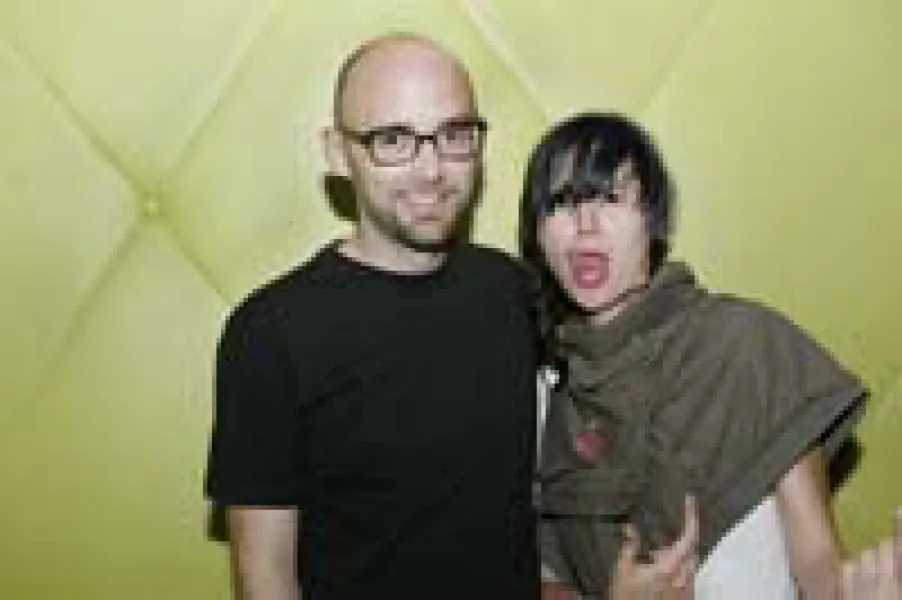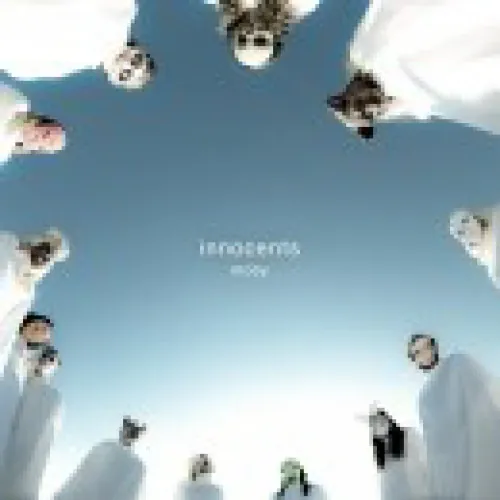
Moby
Top Moby albums
Top Moby lyrics
Moby biography
Moby was one of the most controversial figures in techno music, alternately praised for bringing a face to the notoriously anonymous electronic genre, as well as being scorned by hordes of techno artists and fans for diluting and trivializing the form. In either case, Moby was one of the most important dance music figures of the early '90s, helping bring the music to a mainstream audience both in England and in America. Moby fused rapid disco beats with heavy distorted guitars, punk rhythms, and detailed productions that drew equally from pop, dance, and movie soundtracks. Not only did his music differ from both the cool surface textures of ambient music and the hedonistic world of house music, but so did his lifestyle; Moby was infamous for his devout, radical Christian beliefs, as well as his environmental and vegan activism. "Go" became a British Top Ten hit in 1991, establishing him as one of the premier techno producers. By the time he came to the attention of American record critics with 1995's Everything Is Wrong, his following from the early '90s had begun to erode, particularly in Britain. Nevertheless, he remained one of the most recognizable figures within techno; after he abandoned the music for guitar rock with 1996's Animal Rights, he returned to a heavy electronic base with 1997's I Like to Score and 1999's Play, the latter of which made him a genuine breakout pop star.br /br /Born Richard Melville Hall, Moby received his nickname as a child; it derives from the fact that Herman Melville, the author of Moby Dick, is his great-great grand uncle. Moby was born and raised in Darien, CT, where he played in a hardcore punk band called the Vatican Commandos as a teenager. Later, he briefly sang with Flipper, while their singer was serving time in jail. He briefly attended college, before he moved to New York City, where he began DJing in dance clubs. During the late '80s and 1990, he released a number of singles and EPs for the independent label Instinct. In 1991, he set the theme from David Lynch's television series Twin Peaks to an insistent, house-derived rhythm and titled the result "Go." The single became a surprise British hit single, climbing into the Top Ten. Following its success, Moby was invited to remix a number of mainstream and underground acts, including Michael Jackson, Pet Shop Boys, Brian Eno, Depeche Mode, Erasure, the B-52's, and Orbital.br /br /Moby continued performing at dances and raves throughout 1991 and 1992, culminating in a set at 1992's Mixmag awards where he broke his keyboards at the end of his concert. Moby, his first full-length album, appeared in 1992. In 1993, he released the double A-side single "I Feel It" / "Thousand," which became a moderate U.K. hit. According to the Guinness Book of Records, "Thousand" is the fastest single ever, appropriately clocking in at 1000 beats a minutes. That same year, Moby signed a record contract with Mute and his first release was Ambient, which compiled unissued material recorded between 1988 and 1991. Later that year, The Story So Far, a collection of singles released on Instinct, appeared. In 1994, the single "Hymn" -- one of the first fusions of gospel, techno and ambient music -- was released.br /br /In 1994, Moby signed a major-label contract with Elektra Records in the U.S. Everything Is Wrong, his first album released under the deal, appeared in the spring of 1995 to uniformly excellent reviews, especially in the American press, who had previously ignored him. Despite the promotional push behind the album and his popular sets at the 1995 Lollapalooza, the album wasn't a commercial success. The following year, Moby suddenly abandoned techno to record heavy guitar rock for Animal Rights, which received mixed reviews. A partial return to electronica, 1997's I Like to Score, was followed by 1999's Play. Surpa**ing everyone's expectations, the album became a platinum hit and reached number one in the U.K., while Play's tracks were licensed by dozens of advertisers and compilers. Likewise, 2002's 18 and 2005's Hotel cemented Moby's popularity as a purveyor of electronica-pop. ~ Stephen Thomas Erlewine, All Music Guide

